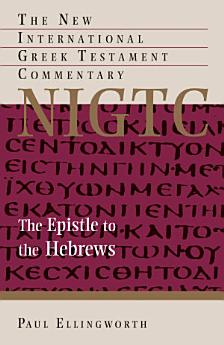The Epistle to the Hebrews
এই ইবুকখনৰ বিষয়ে
In his determined quest to understand Hebrews, Ellingworth begins with a detailed study of the Greek text, working outward to consider the wider context, linguistic questions, and the relation of Hebrews to other early Christian writings and to the Old Testament. Nonbiblical writings such as Philo and the Dead Sea Scrolls, though less directly related to Hebrews, are considered where appropriate.
Unveiling the discourse structure of this carefully written letter, Ellingworth's commentary helps make coherent sense of the complexities of Hebrews. As a result of his exhaustive study, Ellingworth finds Hebrews to be primarily a pastoral, not a polemical, writing. Showing how Hebrews beautifully emphasizes the supremacy of Christ, Ellingworth concludes that the essential purpose of the epistle - which maintains the continuity of God's people before and after Christ - is to encourage readers to base their lives on nothing other and nothing less than Jesus.
A substantive bibliography and a comprehensive introduction precede Ellingworth's commentary, and three indexes - of subjects, authors, and Greek words discussed - conclude the volume.
মূল্যাংকন আৰু পৰ্যালোচনাসমূহ
লিখকৰ বিষয়ে
Paul Ellingworth (1931–2018) was a British biblical scholar who taught at the University of Aberdeen and served as a translation consultant for the United Bible Societies.




